Table Of Contents
- Best Brokers That Accept Paypal Payment Solutions
- How Electronic Payment Platforms Work
- Types of Electronic Payment Platforms
- Pros and Cons of Using Paypal Brokers
- Costs and Fees Associated with PayPal
- Explanation of Various Fees
- Strategies to Minimize Costs
- Comparison of Paypal with Other Payment Methods
- How to Use Paypal with FOREX Trading?
- Best Brokers that Accept Paypal Payment Solution
- Security and Fraud Prevention
- Who is Arincen and What do we do?
- Conclusion
- Methodology
Best FOREX Brokers for PayPal Users in 2026
With many years of meticulous FOREX broker testing, Arincen stands out as a voice of authority. Our analyses, shaped by exhaustive data collection, are trusted by many. Each year, we gather 120 data points from more than 100 brokers. Our team of more than 20 people collaborate extensively to produce high-quality broker reviews like this one. For a detailed explanation of how we test brokers, navigate to the bottom of this article.
Note: We earn money by selling ads, placements, or through partnerships with some companies we have agreements with, learn more.
Electronic payment platforms have revolutionized the way the world conducts financial transactions. From the early days of online banking to the sophisticated digital wallets and mobile payment solutions we use today, these platforms have become integral to our daily lives and, more importantly, to retail trading.
Electronic payment platforms have enhanced the efficiency and convenience of financial transactions, making sending and receiving money globally easier. Among the most popular electronic payment platforms are PayPal, Neteller, and Skrill. Each offers unique features and benefits that cater to your diverse needs.
In this article, we will explore the mechanics of electronic payment platforms, examine the best brokers that accept PayPal as a payment method, and provide a detailed comparison of different payment methods. Our Arincen experts will also discuss security measures, costs, and the benefits of these platforms.
| Company Name | Regulations | Minimum Deposit | Main Branch | |
|---|---|---|---|---|

ICM capital |
FCA | $200 | London | |
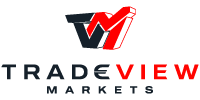
Tradeview |
SCA | $0 | New York, United States of America | |

XTB |
FCA | 0$ | United Kingdom | |

IG Group |
FCA | $250 | United Kingdom |

| Company Name | ICM capital |
| Regulations | FCA |
| Minimum Deposit | $200 |
| Main Branch | London |

| Company Name | Tradeview |
| Regulations | SCA |
| Minimum Deposit | $0 |
| Main Branch | New York, United States of America |

| Company Name | XTB |
| Regulations | FCA |
| Minimum Deposit | 0$ |
| Main Branch | United Kingdom |

| Company Name | IG Group |
| Regulations | FCA |
| Minimum Deposit | $250 |
| Main Branch | United Kingdom |
Best Brokers That Accept Paypal Payment Solutions
With so many selections out there, it's hard to select the right broker that works with PayPal. In this case, we've done the work for you. Here is a summary of each broker according to specific criteria:
ICM Capital-91.10: Best Deposit and Withdrawal Broker
Tradeview - 90.00: Trusted broker that offers very low trading costs as well as comprehensive financial literacy materials for its clients.
XTB - 85.55: Best Customer Service Broker
IG - 85.45: Best Regulations Broker plus Convenient Platform
Saxo Bank - 80.09: Excellent Private Trading Platform
CMC Markets - 80.07: More than 9,000 Assets
ThinkMarkets - 80.05: Aimed at the Audience of Traders

ICM capital
ICM Capital is a UK-origin broker that operates worldwide. The firm provides access to diverse trading products, including FOREX, commodities, futures, and indices. ICM offers a secure and efficient trading environment by combining advanced technology with deep liquidity. The company prides itself on delivering high liquidity, tight spreads, mobile trading, and advanced technical analysis.
Why we picked ICM Capital
For its robust regulatory framework and global oversight. Its presence across multiple jurisdictions demonstrates a genuine commitment to investor protection. This foundation makes it a dependable choice for both new and seasoned traders.
| Broker Evaluation | 9.11 |
| Regulations | FCA |
| Minimum Deposit | $200 |
| Islamic Account | yes |
| Payment Methods | Bank transfer, credit card, Electronic Banks, Crypto |
| Main Branch | London |
| Customer Service | Market Opening Hours |
| Demo Account | Yes |
| Trading Platforms | MT4, MT5, C TRADER, Web Platform |
Pros
-
Segregated client funds.
-
Regulated by the UK’s FCA.
-
Long trading history from 2009.
-
More than 300,000 traders, showing trust.
-
Decent funding options.
-
No swaps.
-
MetaTrader4 (MT4) desktop and mobile download.
-
Competitive spreads
-
ECN spreads starting from zero pips.
-
Fast execution and no-requotes.
Cons
-
No proprietary platform.
-
No US services.
-
Limited cryptocurrency offerings.
-
Inactivity fees which deter casual traders.

Tradeview
Tradeview Markets, the parent company of Tradeview Forex, was established in 2004 and is headquartered in the Cayman Islands. It is committed to offering a broad and accessible trading environment through ECN trading with direct access to dozens of banks and prime liquidity providers, ensuring tight spreads. The broker offers access to a wide range of financial instruments, including FOREX, indices, stocks, cryptocurrencies, and commodities.
Why we chose Tradeview
Our choice was influenced by this broker’s transparent fee structure and competitive pricing, with low spreads and clear cost disclosures. Traders benefit from predictable pricing without hidden charges. Cost efficiency is a crucial advantage in high-frequency and active trading environments.
| Broker Evaluation | 10.00 |
| Regulations | SCA |
| Minimum Deposit | $0 |
| Islamic Account | Yes |
| Payment Methods | Bank Transfer, Credit Cards, Crypto, Electronic banks, local deposits |
| Main Branch | New York, United States of America |
| Customer Service | |
| Demo Account | Yes |
| Trading Platforms | Metatrader 4, Metatrader 5, cTrader, API/FIX |
Pros
-
Variety of trading platforms, such as MT4, MT5, cTrader, and Currenex, catering to different trading preferences and strategies.
-
Provides ECN trading through its innovative Liquidity Connector®, granting direct access to over 50 banks and liquidity providers. Offers tight spreads starting from 0 pips.
-
A low minimum deposit of only $0 is required to start trading, making it accessible to a wide range of traders.
-
Offers a broad range of financial instruments, including FOREX, indices, stocks, cryptocurrencies, and commodities, thus catering to diverse trading interests.
-
Offers educational materials and a demo account, suitable for both beginners and experienced traders looking to refine their strategies.
-
Supports automated trading through the use of Expert Advisors (EA) on MT4 and MT5 platforms.
-
Regulated by CIMA, MFSA, and will soon be regulated by the UK’s Financial Conduct Authority (FCA).
-
Offers global customer service in multiple languages, catering to international traders.
-
Offers competitive leverage up to 400:1.
-
Charges no fees for deposits, making it cost-effective for traders to fund their accounts.
Cons
-
While regulated by CIMA and the MFSA, the broker is still in the final stages of becoming regulated by the tier-one FCA.
-
This means, unfortunately, that the broker currently has no way of offering compensation to affected traders if the broker goes bust. Of course, once FCA regulation is obtained, it will be mandatory for the broker to be part of the Financial Services Compensation Scheme (FSCS) where you could be entitled to compensation of up to £85,000.
-
Trades on the Innovative Liquidity Connector® account are subject to commission charges, which may add to trading costs.
-
Lacks a dedicated mobile app, relying instead on the mobile versions of its available trading platforms.
-
While offering high leverage up to 400:1 can be an advantage, it also introduces significant risks, especially for new traders.

XTB
XTB is a well-regarded broker known for its low costs, extensive asset selection, and advanced trading tools. Founded in 2002 in Poland, it has created a proprietary xStation 5 platform that offers robust features like real-time performance stats, sentiment analysis, and heat mapping. XTB's educational resources are comprehensive, catering to all skill levels with video tutorials, guides, and an accessible Trading Academy. XTB is an excellent choice for cost-conscious traders looking for diverse investment options and high-quality support.
Why we chose XTB
We chose this broker for its responsive and multilingual customer support, available across channels when assistance is needed most. Quick, professional responses reduce friction and build trader confidence. Support quality often reflects overall service reliability.
| Broker Evaluation | 8.55 |
| Regulations | FCA |
| Minimum Deposit | 0$ |
| Islamic Account | yes |
| Payment Methods | Bank transfer, Credit Card, Electronic Banks |
| Main Branch | United Kingdom |
| Customer Service | Market Opening Hours |
| Demo Account | Yes |
| Trading Platforms | MT4, xStation |
Pros
-
20-year history of operation.
-
Regulated by the FCA (UK) and CySEC in Cyprus.
-
Globally recognized, having won multiple awards.
-
Some of the lowest FOREX spreads in the market.
-
Offers protection for client accounts.
-
Emphasis on customer service.
-
Excellent support, as well as learning and research tools.
Cons
-
Does not accept US clients.
-
Number of instruments offered is average-sized.
-
No GSLO.
-
No back-testing or automated trading capabilities.
-
No social trading.

IG Group
IG Group is a highly regarded publicly traded broker that is licensed by 10 regulatory bodies, including the FCA, in its home base of the UK. It offers more than 17,000 financial assets to trade, including currencies, commodities, regular stocks, contracts for difference stocks, ETFs, indices, and cryptocurrencies. Further, it has its own state-of-the-art trading platform and offers a relatively low spread.
Why we chose IG Group
For its clear commitment to transparency and fair dealing, with open terms and client-friendly policies. Honest reporting builds trust and fosters long-term client relationships. We value brokers who prioritise clarity over complexity.
| Broker Evaluation | 8.54 |
| Regulations | FCA |
| Minimum Deposit | $250 |
| Islamic Account | yes |
| Payment Methods | Bank transfer - credit card - Electronic Banks |
| Main Branch | United Kingdom |
| Customer Service | Market Opening Hours |
| Demo Account | Yes |
| Trading Platforms | IG Trading, MT4,ProRealTime,L2 Dealer |
Pros
-
Intuitive mobile and tablet platforms.
-
Low spread costs.
-
Client education offering extensive research materials.
-
Regulated by many reputable authorities.
-
UK and EU clients get negative balance protection.
-
Financially stable and publicly-listed.
-
Rapid response to customer service queries.
-
Extensive range of trading assets.
-
Powerful social trading community.
Cons
-
U.S. clients are limited to FOREX trading only.
-
U.S. clients do not receive negative balance protection.
-
IG CFD prices can be high by industry standards.
-
Limited product portfolio of only CFD and options in many countries.
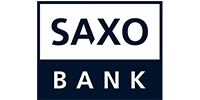
SAXO BANK
Saxo Bank is a well-established, low-risk broker based in Denmark that offers a wide range of trading services to sophisticated traders, institutions, and professional investors. It operates under strict regulatory oversight, ensuring a secure trading environment. The broker provides advanced trading platforms, including SaxoTraderPRO and SaxoTraderGO, catering to high-volume and professional traders with competitive spreads and access to over 71,000 instruments.
Why we chose Saxo Bank
For its comprehensive product range, spanning forex, commodities, indices, and popular CFDs. Such variety allows traders to build diversified portfolios within a single account. This breadth of markets supports evolving strategies and risk preferences.
| Broker Evaluation | 8.09 |
| Regulations | FCA |
| Minimum Deposit | $0 |
| Islamic Account | No |
| Payment Methods | Bank transfer, Credit Card |
| Main Branch | Copenhagen, Denmark |
| Customer Service | Market Opening Hours |
| Demo Account | Yes |
| Trading Platforms | SaxoTrader |
Pros
-
Extensive range of offerings.
-
Offers portfolio-based margin trading for pros.
-
Regulated by top regulators.
-
Excellent trading platforms.
-
Diverse account types.
-
Among the industry’s best research tools.
-
Offers protection for client accounts.
-
No inactivity fee.
-
No platform fees.
-
No minimum funding for entry-level accounts.
Cons
-
Some bonds, options, and futures fees are high.
-
With so many assets, fees can be confusing.
-
High minimum deposit for Platinum and VIP accounts.
-
Does not accept US clients.
-
No MT4 for traders who are used to the platform.
-
No GSLO.
-
No Islamic accounts.

CMC MARKETS
CMC Markets is a global CFD and FOREX broker established in 1989. It is regulated by several authorities globally. The company delivers a formidable offering for traders thanks to excellent pricing, nearly 12,000 tradable instruments, and its proprietary Next Generation trading platform. The platform comes packed with quality research, innovative trading tools, and powerful charting. CMC provides traders with access to an extensive range of CFDs and spread betting across several asset classes.
Why we chose CMC Markets
This broker’s risk management tools and flexible order types stood out to us, enabling traders to tailor positions according to market conditions. Features like stop losses, take profits, and conditional orders provide strategic control. These tools are essential for disciplined trading.
| Broker Evaluation | 8.07 |
| Regulations | FCA |
| Minimum Deposit | 0$ |
| Islamic Account | No |
| Payment Methods | Bank transfer, Credit Card, Electronic Banks |
| Main Branch | United Kingdom |
| Customer Service | Market Opening Hours |
| Demo Account | Yes |
| Trading Platforms | Proprietary Platform, MT4, Web Platform |
Pros
-
Extensive range of offerings.
-
Regulated by the FCA (UK) and other top regulators.
-
Low FOREX fees.
-
Emphasis on education and customer service.
-
Great Web and mobile platforms.
-
Offers protection for client accounts.
-
Research amenities are industry leading.
Cons
-
Does not accept US clients.
-
High CFD spreads for certain indices.
-
It only offers CFD trading, so traders cannot own the underlying asset.
-
Does not support deposits and withdrawals through electronic payments.

think markets
ThinkMarkets is a multi-regulated broker with offices around the globe. The firm is primarily a CFD broker, allowing you to trade across 4,000 instruments in FOREX, futures, commodities, indices, ETFs, crypto, and stocks. With an emphasis on superior customer service, ThinkMarkets maintains round-the-clock support in several languages. It provides different trading accounts suited to individual traders' needs. This includes zero-commission accounts and access to trading guides, analysis tools, and industry news feeds.
Why we chose ThinkMarkets
We selected this broker for its fast and flexible funding options, including bank transfers and card payments. Smooth deposits and withdrawals reduce administrative delays and support efficient capital management. Accessibility of funds is an often-overlooked but essential feature.
| Broker Evaluation | 8.05 |
| Regulations | FCA |
| Minimum Deposit | $0 |
| Islamic Account | Yes |
| Payment Methods | Bank transfer - credit card - Electronic Banks - Crypto |
| Main Branch | Australia |
| Customer Service | Market Opening Hours |
| Demo Account | Yes |
| Trading Platforms | Proprietary Platform, Web Platform, MT4, MT5 |
Pros
-
Beginner assistance is offered through round-the-clock channels.
-
Spreads are as low as 0.0 pips.
-
Round-the-clock expert customer service.
-
CFD shares and indices come at no extra fee.
-
Zero broker fees for FOREX trading.
-
Technical analysis and quality market information.
Cons
-
No binary options are offered.
-
Commissions are charged for two account types.
-
Range of tradeable assets is not as wide as some competitors.
-
No US clients allowed.
There is a high degree of risk involved in trading securities like FOREX, or CFDs, which are highly complex instruments. As a trader, you could be exposed to excessive leverage, questionable broker tactics, market volatility, and limited regulatory protection. Despite your best trading techniques and risk management strategies, your efforts may not be profitable, and you could suffer losses.
How Electronic Payment Platforms Work
Electronic payment platforms make transferring money easy through advanced technology, robust security measures, and seamless integration with financial institutions. Understanding these mechanics helps you appreciate these platforms' efficiency and security.
Basic Mechanics of Electronic Payments
At a basic level, electronic payment platforms facilitate funds transfer between parties through digital means. These platforms act as intermediaries, processing payments without the need for physical cash or checks. Here’s a breakdown of the mechanics:
You register an account by providing basic information such as your name, email address, and phone number to create an account.
Users link their bank accounts or credit/debit cards to the platform. This involves entering bank details and verifying ownership.
The platform usually requires verification through email, phone, or identity verification
The user initiates a transaction through the platform, whether it’s paying for goods, transferring money, or depositing funds into a brokerage account.
The platform verifies your identity through login credentials and, often, additional security measures like two-factor authentication.
The platform processes the transaction by communicating with your bank or credit card issuer to authorize and transfer the funds.
Once the funds are transferred, the platform confirms the transaction with both the sender and the recipient, completing the process.
Security Measures and Encryption
Security is paramount in electronic payments to protect against fraud and unauthorized access. Payment platforms like Paypal employ multiple security measures, including:
All transactions are encrypted using advanced encryption standards (AES), ensuring that data transferred between the user, platform, and banks is secure.
Secure Sockets Layer (SSL) and Transport Layer Security (TLS) protocols encrypt data transmitted over the internet, protecting sensitive information from interception.
Two-factor authentication (2FA) requires a second form of verification, such as a code sent to the user’s mobile device, to enhance account security.
Platforms use sophisticated algorithms and machine learning to detect and prevent fraudulent activities.
Payment platforms comply with industry standards like Payment Card Industry Data Security Standard (PCI-DSS) to ensure secure handling of payment information.
Types of Electronic Payment Platforms
Electronic payment platforms come in various forms, each offering unique features and benefits. Understanding the different types can help you choose the most suitable option for your needs.
Digital Wallets
Digital wallets, also known as e-wallets, are online services that allow users to store and manage their payment information in one place. They facilitate quick and secure transactions, both online and in-person. As we have said, some of the most popular digital wallets are:
PayPal
PayPal is one of the most widely used digital wallets globally, offering a secure way to send and receive money online. It supports payments for goods and services, peer-to-peer transfers, and integration with numerous online merchants.
PayPal provides buyer protection, easy dispute resolution, and the ability to link multiple bank accounts and credit cards. It also offers services like PayPal Credit for deferred payments.
Skrill
Skrill is a digital wallet known for its low fees and ease of use, and it is particularly popular among online gamblers and FOREX traders. It supports multiple currencies and offers a prepaid Mastercard for direct access to funds.
Neteller
Neteller is similar to Skrill, catering primarily to the online gambling and trading communities. It allows users to make instant deposits and withdrawals at various online merchants.
Mobile Payment Solutions
Mobile payment solutions allow you to transact using your smartphone or other mobile devices. These solutions are particularly convenient for in-person payments and on-the-go transactions. This space is becoming increasingly competitive, but some of the most prominent mobile payment solutions include:
Apple Pay
Apple Pay allows you to make secure payments using your Apple devices, including iPhones, iPads, and Apple Watches. It works both online and in physical stores equipped with Near Field Communication (NFC) technology.
Google Wallet
Google Wallet, now integrated with Google Pay, allows you to store your payment information and make secure transactions using Android devices. It supports online payments, in-app purchases, and in-store transactions with NFC technology.
Cryptocurrency Payment Platforms
With cryptocurrency payment platforms, you can transact using digital currencies like Bitcoin. These platforms provide a decentralized, secure way to transfer funds without relying on traditional banking systems.
Bitcoin Wallets
Bitcoin wallets store private keys necessary for accessing and managing Bitcoin funds. They come in various forms, including hardware wallets, software wallets, and online wallets.
Other Crypto Payment Solutions
Beyond Bitcoin, many other cryptocurrencies have dedicated wallets and payment solutions. Platforms like Ethereum, Litecoin, and Ripple have their own wallets and payment networks.
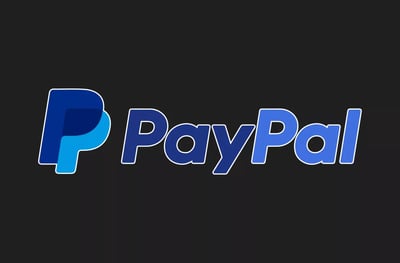
Pros and Cons of Using Paypal Brokers
Using PayPal as a payment solution with retail brokers offers several advantages and some potential drawbacks. Understanding these can help you make informed decisions about integrating PayPal into your trading activities.
Pros
Ease of use: PayPal is user-friendly, with a straightforward setup process and an intuitive interface. Linking PayPal to a brokerage account is quick, allowing you to deposit and withdraw funds effortlessly.
Fast transactions: PayPal transactions are processed instantly or within a few minutes. This is exactly what you need in a fast-paced trading environment.
Encryption and fraud protection: PayPal uses advanced encryption technologies and robust fraud detection systems to protect your data and transactions.
Buyer protection: In case of unauthorized transactions or disputes, you could benefit from buyer protection policies depending on the specifics of your case.
Worldwide reach: The payment provider is available in over 200 countries and supports multiple currencies, making it an ideal payment solution for international traders.
Cross-border transactions: PayPal facilitates seamless cross-border payments, allowing you to transact with brokers and clients around the world without hassle.
Versatile usage: It’s not just trading that you get with Paypal. It can also be used for various other financial activities, such as online shopping, bill payments, and peer-to-peer transfers.
Merchant compatibility: Many online merchants and services accept PayPal, making it one of the go-to online payment platforms for traders.
Cons
High fees: PayPal charges fees for certain transactions, including currency conversion and withdrawals to bank accounts. These fees can add up, especially if you make frequent transactions.
Deposit and withdrawal Fees: Some brokers may also charge additional fees for deposits and withdrawals made via PayPal, increasing the overall cost of using this payment method.
Merchant limitations: Not all brokers accept PayPal, so you should make sure that you check with your broker before signing up with them.
Strict policies: PayPal’s strict compliance and security policies can sometimes result in account suspensions. You should understand what these policies are to stay on the right side of them.
Costs and Fees Associated with PayPal
When using electronic payment platforms for trading or other financial activities, it’s essential to understand the various fees that can impact the overall cost of transactions. These fees can vary depending on the platform, the type of transaction, and the currencies involved. Here, we explore the different types of fees associated with electronic payment platforms and provide strategies to minimize these costs.
To assess trading costs accurately, the Arincen research team examined broker pricing across multiple sources, combining published fee schedules with observed trading conditions. Our analysis focuses on spreads, commissions, and additional charges that impact traders in practice. You can see the consolidated findings in the table that follows.







| Spread | Commission | Swap | Islamic Account | |
| Currencies | Starting from 1.3 Pips | 0$ | No | Available |
| Stocks | Starting from 18 Pips | 0$ | Yes | Unavailable |
| Commodities | Starting from 2.3 Pips | 0$ | No | Available |
| Indices | Starting from 4 Pips | 0$ | Yes | Unavailable |
Explanation of Various Fees
Transaction fees: These charges are applied for processing payments. The fees are typically a percentage of the transaction amount, sometimes with an additional fixed fee.
Currency conversion fees: These amounts are charged when a transaction involves converting one currency to another and may include a markup on the exchange rate.
Withdrawal and deposit fees:These fees are charged when transferring funds between the payment platform and a bank account or another payment method. They can vary based on the platform and the type of transfer.
Our pricing review draws on Arincen’s independent research, where we analysed broker cost structures using both advertized rates and real-world trading data. By comparing spreads, commissions, and related fees, we aimed to reflect what traders are likely to experience. The outcome of this assessment is displayed in the table below.







| Method | Credit Card | Wire Transfer | Skrill | Neteller | Cryptocurrency | PayPal |
| Deposit fee | 0$ | $0 + Bank commission | 1.9% | 2.5% | Unavailable | 3.75% |
| Withdrawal fee | 0$ | $15 | 1% | $0 | Unavailable | 2% |
Strategies to Minimize Costs
You don’t have to accept all the fees you encounter. By conducting thorough research, you have the opportunity to hand pick the best PayPal broker that gives you the right deal. Here are some actions to take:
Comparison shopping: Compare the fees of different payment platforms before choosing one. Some platforms may offer lower fees or better exchange rates.
Special deals: Look for platforms that offer promotions or fee discounts for new users or specific types of transactions.
Batch transactions: Combine multiple smaller transactions into a single larger transaction to reduce the overall percentage of transaction fees.
Avoid peak times: Conduct transactions during off-peak times when platforms may have lower fees or less demand for their services.
Avoid conversion fees: Wherever possible, conduct transactions in the same currency to avoid conversion fees. This might involve maintaining balances in multiple currencies.
Currency accounts: Some platforms allow you to hold balances in different currencies, enabling you to pay and receive funds without conversion.
Minimize withdrawal fees: Linking your payment platform account directly to your bank account can reduce or eliminate withdrawal fees. Some platforms charge less for direct bank transfers compared to other methods.
Use bank transfers: Opt for bank transfers instead of card withdrawals to save on additional fees.
Favorable exchange rates: Keep an eye on exchange rates and conduct conversions when rates are more favorable to reduce currency conversion costs.
Fixed rate options: Some platforms offer the option to lock in exchange rates for future transactions, providing cost predictability.
Rewards programs: You should always make the most of rewards or loyalty programs offered by the payment platform. For example, Skrill’s Knect program rewards users with points that can offset transaction costs.
Premium accounts: Consider upgrading to a premium account if it offers lower fees or additional benefits that justify the cost.
Comparison of Paypal with Other Payment Methods
When choosing a payment method, it’s essential to consider factors such as transaction speed, security features, convenience, fees, volatility, and acceptance. Here, we compare PayPal with credit/debit cards, bank transfers, and cryptocurrencies.
Electronic Payment Platforms vs. Credit/Debit Cards
Transaction speed
PayPal: Transactions are typically processed instantly or within a few minutes, providing you with quick access to funds.
Credit/debit cards: Most card transactions are also processed quickly, often within minutes. However, some international transactions might take longer to settle.
Security features
PayPal: Offers advanced encryption, fraud detection, and buyer protection policies. PayPal transactions do not require sharing card details with merchants, adding an extra layer of security.
Credit/debit cards: Banks and card networks provide robust security features, including encryption, fraud alerts, and zero-liability policies for unauthorized transactions. However, card details are shared with merchants during transactions, which could pose a risk if the merchant's system is compromised.
Electronic Payment Platforms vs. Bank Transfers
Convenience and processing time
PayPal: Highly convenient with user-friendly interfaces. Transactions are generally instant.
Bank transfers: Typically less convenient, requiring more steps and longer processing times. Domestic transfers can take a few hours to a day, while international transfers might take several days.
Fees and Charges
PayPal: Charges fees for certain transactions, such as receiving payments for goods and services, currency conversion, and withdrawals to bank accounts.
Bank transfers: Fees vary by bank and transfer type. Domestic transfers are often low-cost or free, but international transfers can be expensive due to transfer fees and unfavorable exchange rates.
Electronic Payment Platforms vs. Cryptocurrencies
Volatility and Acceptance
PayPal: It’s stable and widely accepted by merchants and service providers globally. PayPal also supports cryptocurrency transactions but mostly operates with fiat currencies.
Cryptocurrencies: Highly volatile, with significant price fluctuations as we have seen over the last couple of years. Acceptance is growing but still limited compared to traditional payment methods. Cryptocurrencies are not universally accepted.
Ease of Use and Mainstream Adoption
PayPal: Easy to use with a straightforward setup process. Widely adopted and trusted by millions of users and merchants worldwide.
Cryptocurrencies: They require a higher level of technical knowledge and understanding. Setting up a wallet and securing private keys can be challenging for non-technical users. Mainstream adoption is increasing but remains low.
How to Use Paypal with FOREX Trading?
Using PayPal with FOREX trading is a good call because it can streamline transactions, provide added security, and offer convenience. Here’s a detailed guide on how to link PayPal to your brokerage accounts, manage funding and withdrawals, and understand the advantages of using this platform for trading.
Steps to Link Payment Platforms to Brokerage Accounts
Not all processes will be exactly like this between brokers, but this is close enough to a universal way to link payment platforms.
Choose a FOREX Broker that Accepts PayPal
Ensure the broker is regulated and has good reviews.
Create an account with the chosen Forex broker.
Log in to your FOREX trading account on the broker’s website.
Navigate to payment options and go to the “Deposit” or “Payment Methods” section.
Choose PayPal as your payment method. You will be redirected to PayPal’s website.
Log in to your PayPal account and authorize the broker to access your PayPal funds. Confirm the linking process.
Note that some brokers might require additional verification, such as submitting ID documents or proof of address.
Tip for those who have no experience
We believe that a solid foundation in education and research is essential for every successful trader. That’s why we’ve created a set of resources specifically for you. Our comprehensive articles provide an understanding of the basics, while our videos offer insights from industry insiders. Stay updated with the latest developments in the market through our newsfeed, signals, and detailed analytics.
Choosing the right broker means balancing cost, reliability, and market access. Compare trading fees, asset coverage, and leverage conditions across regulated platforms. Study execution speed, slippage history, and available analytical tools. A serious trader picks a broker that performs well under real market pressure, not just on paper.
Best Brokers that Accept Paypal Payment Solution
When choosing a FOREX broker that accepts PayPal, you need to consider various criteria to ensure you select a reputable and efficient broker. Here are the key factors to look for in brokers accepting PayPal.
Regulation and Licensing
Ensure the broker is regulated by a reputable financial authority, such as the Financial Conduct Authority (FCA), Cyprus Securities and Exchange Commission (CySEC), or the Commodity Futures Trading Commission (CFTC). Regulation provides a layer of protection for traders, ensuring the broker adheres to industry standards and practices.
Trading Platforms and Tools
The broker should offer intuitive and robust trading platforms, like MetaTrader 4 (MT4), MetaTrader 5 (MT5), or their proprietary platforms. Look for advanced trading tools, charting capabilities, technical analysis, and mobile trading options to enhance your trading experience.
Fees and Commissions
Ensure the broker offers tight spreads on major currency pairs. Check if the broker charges commissions on trades and compare them with other brokers to ensure they are competitive. Be aware of any additional fees, such as deposit and withdrawal fees, inactivity fees, or account maintenance fees.
Customer Support
The broker should offer responsive customer support available 24/5 or 24/7. Look for brokers that provide support through various channels, including live chat, email, and phone. Efficient and knowledgeable customer service can significantly enhance your trading experience, especially when resolving issues promptly.
Based on in-house analysis by the Arincen team, we reviewed pricing data from both official broker websites and live market conditions. This included spreads, commissions, and trading fees observed in real use. The results of that comparison are summarized in the table below.







| Live Chat | Phone | |||
| Available | Available | Available | Available | Available |
| Quick response | Quick response | Fast | Fast | Fast |
Security and Fraud Prevention
PayPal uses various measures to protect consumers from scams and fraud. First, they use SSL/TLS Encryption, which ensures that data transmitted between your device and their servers is encrypted and secure. Through 2FA, you must provide two forms of identification before accessing your account, adding an extra layer of security.
Of course, in today’s world, you would have been asked to complete a Know Your Customer (KYC) process thatrequires you to provide identification documents to verify your identity. How does this help you against fraud? Well, it reduces the likelihood of fraudulent accounts being created.
Like many diligent financial institutions, it is highly likely that PayPal continuously monitors account activity to detect and prevent unauthorized transactions. It will send alerts for unusual activities, such as login attempts from new devices or locations. PayPal also uses machine-learning algorithms to analyze transaction patterns and flag suspicious activities in real-time.
Regulation is another important backstop for fraud. For example, by adhering to the Payment Card Industry Data Security Standard, PayPal must abide by requirements for security management, policies, procedures, network architecture, and software design.
By employing these sophisticated security measures, online payment providers like PayPal work to protect you from scams and fraud. Their multi-layered approach combines advanced technology, regulatory compliance, and user education to create a secure online payment environment.
A regulated broker adheres to a stringent set of guidelines and operational standards, designed to ensure transparency, security, and integrity in all transactions. Electing to trade with an unregulated broker amplifies the risk of financial loss, fraud, and exposure to unethical practices. For a list of the best regulators, read our article here.
Who is Arincen and What do we do?
Put simply, Arincen is a social networking platform that brings together traders and experts to exchange expertise and ideas. Together, we evaluate the best FOREX companies in the world while offering a compressive suite of services and tools, all in one place, either via a computer or a mobile app. The platform is so rich that one can create his own private portfolio of traders and experts they like and, at the same time, follow the experts’ recommendations and investment sentiments.
Further, thanks to Arincen, users can keep an eye on market-price developments, as well as the latest news. Users can also benefit from the network’s educational courses on offer, to say nothing of exciting Webinars – all done in a modern and fast-paced work environment. Get all you need in one place, not less, not more. In short. Arincen: We Meet to Simplify the Trading World.
Conclusion
Electronic payment platforms like PayPal have changed the way we carry out financial transactions by offering convenience, security, and efficiency. These platforms make seamless global money transfers a formality through advanced encryption and robust security measures to protect users. PayPal has unique features catering to diverse needs, whether it's for trading, online shopping, or peer-to-peer transfers.
Where PayPal comes in very handy is in the area of FOREX trading, as it makes a reliable and robust payment method. However, you must consider the associated costs, such as transaction fees and currency conversion charges, to make informed decisions. By understanding the mechanics, security protocols, and fee structures of these platforms, you can make the most of the benefits while minimizing costs, ensuring a secure and successful trading experience.
Methodology
The team at Arincen collected more than 120 pieces of data covering more than 100 licensed FOREX companies. Data collection was done in three ways:
Companies’ websites.
Other websites that have ranked FOREX companies.
A survey questionnaire (called Survey “1”) was sent to the companies invited to participate in the exercise. We have identified 13 criteria for our assessment, each containing several aspects and carrying its relative weight. These include licensing, deposits and withdrawals, and the number of assets.
Afterward, we validated the data by:
Registering with FOREX companies as a secret shopper and/or as Arincen.
Survey number “2,” in which we asked these companies’ customers for important feedback and experience.
The next step was to evaluate and rank each company, relying on the hard work of 15 Arincen employees. We were cautious in ensuring the most accurate assessment possible, including considering different languages and the various mobile-app operating systems, e.g., Apple, Samsung, etc.
To add credibility to our research project, we sent a third and final survey (referred to here as Survey “3”) to enable participating FOREX companies to evaluate our research and whether it accurately reflects the realities on the ground. We were fortunate enough to receive a mark of 9.9 out of 10! We have kept the margin of error to a minimum, which stood at a measly 1%. To learn more about how we came up with the evaluation, please click here.
FAQ
The main electronic payment platforms discussed are PayPal, Skrill, and Neteller.
Electronic payment platforms enhance efficiency by facilitating instant or near-instant fund transfers, offering user-friendly interfaces, and integrating seamlessly with financial institutions.
Platforms like PayPal use advanced encryption standards (AES), Secure Sockets Layer (SSL) and Transport Layer Security (TLS) protocols, two-factor authentication (2FA), and sophisticated algorithms to detect and prevent fraudulent activities.
The article covers digital wallets (e.g., PayPal, Skrill, Neteller), mobile payment solutions (e.g., Apple Pay, Google Wallet), and cryptocurrency payment platforms (e.g., Bitcoin wallets).
Advantages include ease of use, fast transactions, robust encryption and fraud protection, buyer protection policies, worldwide reach, and compatibility with many online merchants.
Common fees include transaction fees, currency conversion fees, and withdrawal and deposit fees.
Strategies include comparison shopping, looking for special deals, combining multiple smaller transactions, avoiding peak times, conducting transactions in the same currency, and linking accounts directly to bank accounts.
To link PayPal to a FOREX trading account, users should choose a broker that accepts PayPal, create an account with the broker, navigate to payment options, select PayPal, log into PayPal to authorize the broker, and confirm the linking process. Some brokers may require additional verification, such as submitting ID documents or proof of address.

